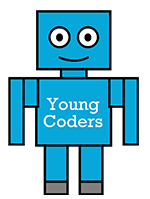
Blog
Latest news on the Young Coders Competition

Latest news on the Young Coders Competition
The wait is over — the Young Coders Competition 2026 is here!
This year, we’re challenging young people to unleash their creativity and coding skills around the theme: Neighbourhood Navigators. From reimagining the streets where you live, to solving everyday problems in your community, or even inventing futuristic ways to explore your town, we can’t wait to see how children bring this year’s theme to life in Scratch.
Who can enter?
The competition is open to children aged 8–13 (Years 4–8 in England, P5–S1 in Scotland, Years 5–8 in Northern Ireland). Children can enter individually or in teams of 2–6. No experience? No problem! We’ve created:
Both options come with resources you can use at school, in an after-school club, or at home with a parent or guardian.
What’s included in the pack?
We’ve made getting started simple. The pack includes:
Everything you need is ready to download and share.
The prizes
Every child who enters receives a certificate of participation and personalised feedback from our judges. Winning teams also receive:
Our sponsor
We’re delighted to welcome back nimbl as our major sponsor for 2026. Nimbl is a pocket-money app and prepaid card designed to help children learn money skills in a safe, practical way. It gives young people the chance to practise budgeting, saving, and making spending choices with the support of their parents. Their mission to build financial confidence in children perfectly complements our aim of building digital skills for the future.
Key dates
How to sign up
Ready to join the Young Coders Crew? Sign up via our website, download your competition pack, and start planning your project today. Whether you’re an educator launching this in your classroom, or a parent supporting your child at home, this is your chance to inspire the next generation of coders.
The Young Coders Competition is an exciting way to inspire children to code, and we want as many young people as possible to get involved. If you’re an educator, parent, or guardian, here are some easy, ready-to-use ways to promote the competition in your school or community.
Check out the launch pack here for all the assets you can use, with the ideas below
1. Display posters
We’ve provided editable A4 posters (PowerPoint or PDF) in your competition pack. Print them, add your details, and display them in classrooms, hallways, libraries, and on noticeboards. Posters are a quick way to spark curiosity and let students know how to get involved.
2. Share in newsletters
Add a short announcement to your school newsletter. Here’s some copy you can drop straight in:
“The Young Coders Competition 2026 is now open! Children in Years 4–8 are invited to create a Scratch game around this year’s theme, Neighbourhood Navigators. Whether a beginner or a budding coder, every participant will receive a certificate, and schools can win prizes up to £200. Visit [website link] to learn more and sign up.”
We’ve included a square promotional tile you can include
3. Post on social media
If your school has a Facebook page, share a post about the competition and don’t forget to tag @youngcoderscompetition. Social media is a powerful way to spread the word to parents, carers, and the wider community.
4. Send posters home
As well as displaying them in school, you can print off the posters and send them home with children. Parents and guardians often need a nudge to support sign-ups, and a colourful poster in a book bag does the trick.
5. Use assemblies
Launch the competition with our assembly slides and script included in your pack. Assemblies build excitement, explain the theme, and encourage children to sign up individually or in teams.
6. Try something creative
Why it matters
Promoting the Young Coders Competition isn’t just about filling in entry forms. It’s about opening doors for children to discover problem-solving, creativity, and teamwork through coding. With the ready-made resources in your pack, all you need to do is spread the word.
Together, we can inspire the next generation of digital creators — and maybe even uncover future game designers, app developers, or tech leaders.